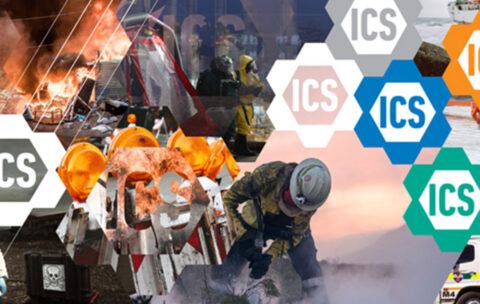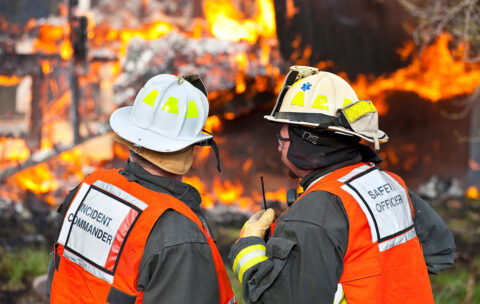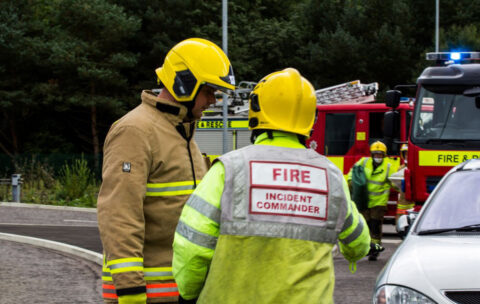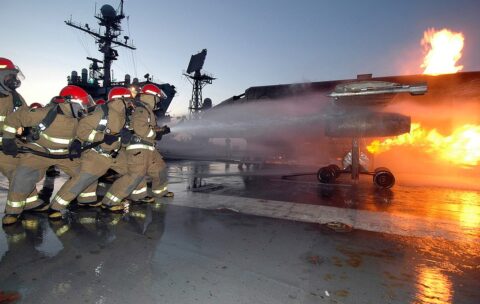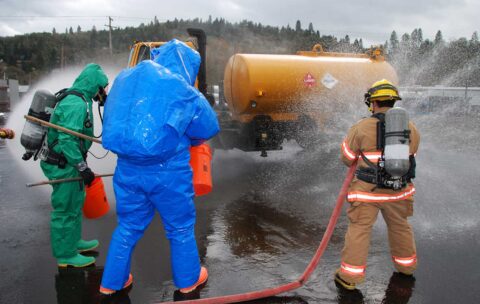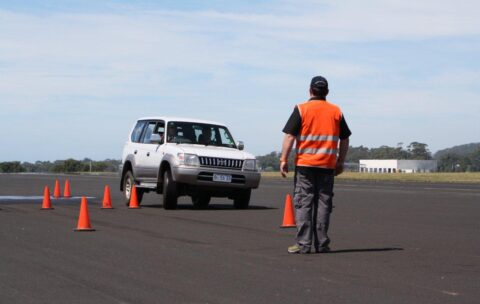ICS 100 – Basics of the International Incident Command System
This one-day session is intended to give emergency personnel a …
What you'll learn
Describe the functional areas of ICS and the roles of the Incident Commander and Command Staff.
Outline the fundamentals and framework of the Incident Command System (ICS).
Detail the NIMS management features that form the foundation of ICS.
Explain the operational components of ICS and the functions of the Incident Commander and Command Staff.
Explain the responsibilities of the General Staff in ICS.
Discuss how the NIMS management features are applicable to ICS in various job roles and subject areas.
ICS 200 – ICS for Single Resources & Initial Responders
This course is designed to equip emergency response group/team leaders …
What you'll learn
Describe how the management features of the NIMS are related to Incident Commands and Unified Commands.
Describe the process of delegating, authorizing implementation, and managing objectives, plans, and goals.
Identify the organizational components of the ICS, including its command, staff, and tools.
Explain the flexibility in the standard ICS organizational structure.
Explain the procedures for briefings and transferring commands.
Use ICS to effectively manage an incident or event.
ICS 300 – Intermediate Incident Command
Intermediate Incident Command (ICS 300) is a three-day course designed …
What you'll learn
Explain the ways in which the command and management components of NIMS support the management of an extended incident.
Describe the process of incident/event management for supervisors according to the Incident Command System (ICS).
Create Incident Action Plans for simulated incident situations.
Aircraft’s Fire Fighting Strategies & Tactics
This three-day course is designed to provide comprehensive coverage of …
What you'll learn
Discuss the responsibilities of airport firefighters.
Identify the safety considerations for ARFF (Aircraft Rescue and Firefighting) operations.
Explain the types of extinguishing agents used in ARFF operations.
Evaluate the effectiveness of ARFF operations in mitigating common aircraft emergencies.
Highlight the necessary rescue operations for an aircraft incident.
Demonstrate the use of an airport emergency plan when responding to airport emergencies.
Responding to Hazardous Materials Incidents
Engaging and motivating students are always very challenging task faced …
What you'll learn
Describe the standards, laws, and legislation that apply to the initial response to hazardous materials incidents.
Appreciate the importance of safety during the response to hazardous material incidents.
Identify the class of hazardous materials present at the scene.
Explain the benefits and consequences of basic concepts and procedures used in managing hazardous materials sites and setting up the scene.
Understand the role of first responders in decontamination during hazardous materials incidents.
Be familiar with the challenges and risks associated with the initial response to hazardous materials incidents.
Fire Safety: Rules & Practices
This three-day course is designed to cover various aspects of …
What you'll learn
Recognize the chemistry of fire and how different fuels can make fires more intense.
Perceive the personal risks associated with combustion.
Distinguish among various fire protection systems and their inspection and maintenance requirements.
Read and appreciate the importance of evacuation plans and procedures.
Inspection & Testing of Fire Protection Systems & Equipment
This 5-day course is designed to train fire and safety …
What you'll learn
Describes different types of fire protection systems and equipment, explaining their functions and suitability.
Discuss the standards, laws, and regulations that govern the reliability of fire protection systems.
Locate the inspection requirements for various fire protection systems and equipment.
Use standards and manufacturers' recommendations to optimize the ITM (Inspection, Testing, and Maintenance) programs effectiveness.
Defensive Driving: Rules & Practices
Driving has become increasingly dangerous due to the rising number …
What you'll learn
Improve driving management skills taking into account the roads have also other drivers.
Identify the obstacles that hinder defensive driving.
Identify the factors that affect one's ability to stop the car and avoid danger.
Identify the dangers and risks that you may encounter while driving.
Adjust the driving style according to the level of danger and risk.

